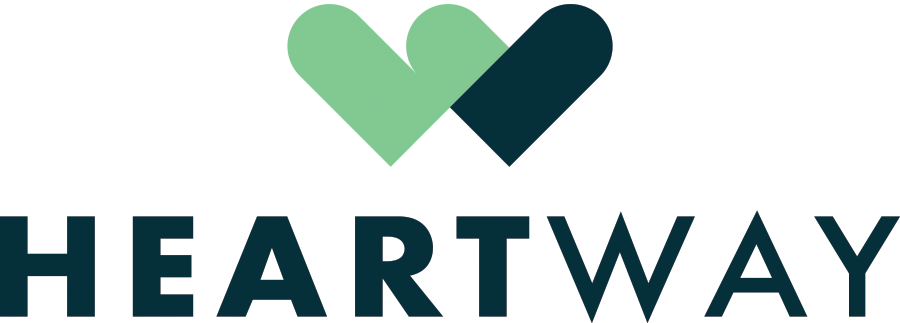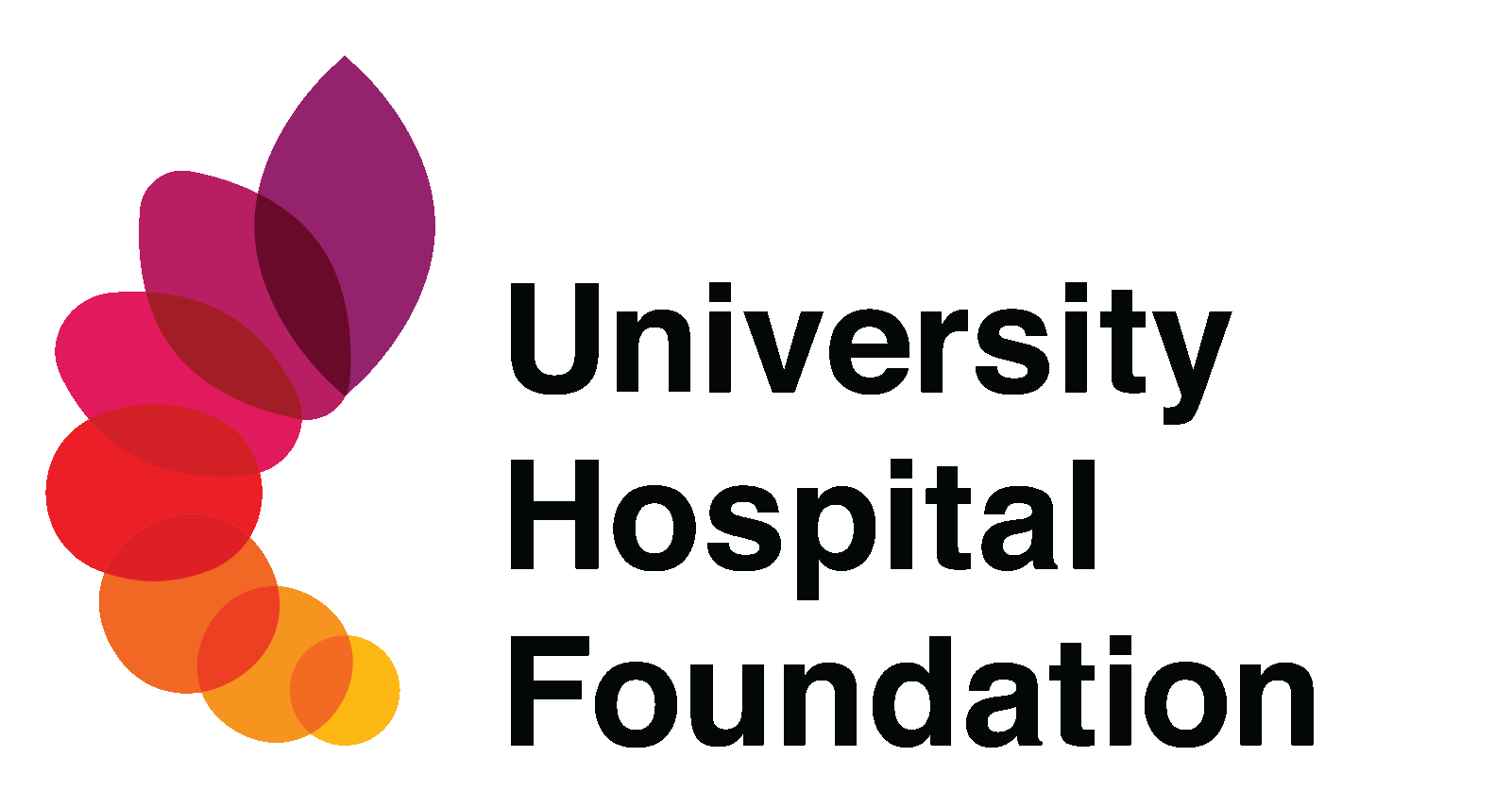Secondary Prevention of Atherosclerotic Cardiovascular Disease (ASCVD)
Heartway
Created in 2022, “Heartway” is a strategic partnership between the University Hospital Foundation, Alberta Health and Novartis with key support from the Cardiovascular Health & Stroke Strategic Clinical NetworkTM.
Heartway seeks to improve outcomes for the 484,195 Albertans living with Atherosclerotic Cardiovascular Disease (ASCVD) by introducing innovative and proactive approaches to secondary prevention. 1
Secondary Prevention of ASCVD refers to strategies aimed a reducing the probability of recurrent cardiovascular events (e.g., new heart attacks or new strokes) in patients with known Atherosclerotic Cardiovascular Disease.

The priority is to save lives and contribute to health system sustainability considering that:
Cardiovascular Disease (CVD) is Alberta’s leading cause of death, and disease related hospitalizations in Alberta. 2
Secondary prevention efforts by way of medications, exercise, quitting smoking, losing weight can greatly decrease the chances of a second heart attack or stroke. 3
CVD presents a large financial burden on Alberta's healthcare system with costs estimated at $5.5 billion over the next four years. 4
Clinical Challenge
- A high proportion of people living with ASCVD have cholesterol levels that are too high.
- Of the 484,195 Albertans living with ASCVD, 30-50% are expected to have uncontrolled cholesterol.5
- Uncontrolled cholesterol can cause heart and blood vessel diseases, including coronary heart disease, carotid artery disease, heart attack, stroke, and sudden cardiac arrest.
- There are a number of innovative therapeutic approaches for ASCVD that may result in better management in the community setting however, the care path for secondary ASCVD prevention needs to be established.
- Implementation of novel therapeutics will require a consistent evidence-based and patient-centric system to ensure the right regimen of medicine, lifestyle, and disease management support.
- Enhance primary care, including the role of pharmacists and allied health professionals
- Improve equitable access to community-based care
- Begin with a focus on lipid lowering therapies in alignment with the Canadian Cardiovascular Society’s Cholesterol Guidelines
- Utilize Alberta data sets and digital health innovation, and
- Demonstrate measurable outcomes through evaluation
There are currently 484,195 people living with Atherosclerotic Cardiovascular Disease (ASCVD) in Alberta.
Heartway Pilot Projects
Four community-based Pilot Sites are developing and implementing cholesterol lowering interventions designed to fit with their practice environments:
- A Family Practice of General Practitioners and Allied Health Professionals in Sherwood Park, AB offers on-site services including radiology, lab, physiotherapy, dermatology, psychology, dentistry, obstetrics, ENT specialty, sleep lab, and cardio-pulmonary clinic.
- A Pharmacy in Lethbridge, AB where Pharmacists assess the need for interventions, accept referrals, assist with choosing appropriate medications while considering existing medication. Pharmacists counsel patients on their disease and related treatments, they follow up to determine adherence, can order and interpret lab results and they can assist with drug coverage issues.
- A Family Practice in Calgary, AB which provides access to interdisciplinary health teams who work with Doctors, including Registered Nurses, Pharmacists, a Behavioural Health Consultant, Respiratory Educators and a Health Management Nurse.
- An Internal Medicine-Pharmacy Collaboration serving Grande Prairie, AB and the surrounding area.
Lipid Optimization Pathways
Pilot Sites have designed Lipid Optimization Pathway Plans as quality improvement initiatives to support high risk individuals with established ASCVD. The focus is on engaging individuals in collaborative treatment approaches to reduce the risk of future cardiovascular events.
The Pathways consist of three key phases with the following objectives:
- Discovery: Identify individuals at risk (using electronic medical records to identify eligible individuals and invite them to participate)
- Personalized Optimization: Collaborating with individuals to establish the most effective treatment and recognizing needs and preferences
- Sustained Support: Maintain ongoing support and communication to ensure continuity of care, including regular follow-ups and adjustments to medications as needed
Testing a Common Protocol
Pilot Sites are testing a Common Protocol based on the Canadian Cardiovascular Society 2021 Guidelines. The Protocol focuses on supporting ASCVD patients to reduce their cholesterol levels. The Common Protocol will be refined based on service provider and patient experiences of “what is working” and “what is not working” as identified during the evaluation process.
Heartway will share learning and best practices from pilot projects to support pathway scale-out across the province.
Anticipated Outcomes
- Increased access to community-based care
- Increased equity of access for rural, cultural, and marginalized populations
- Demonstrated patient-centered practice with shared decision-making
- Reduced incidence of cardiovascular hospitalizations and reduced morbidity
- Reduced healthcare costs
Questions and Answers
We are unique in that while we are rooted in a leading academic health centre, we are provincial in scope with a leading role in the health ecosystem, facilitating research and supporting innovation through partnerships.
Our position outside of government, the health delivery, research systems and industry enables us to work as a boundary spanning organization, to bridge knowledge gaps and serve as a catalyst to facilitate partnerships.
Our strategic plan, Ignite 2030 has set a course for us to boldly disrupt longstanding, traditional approaches to healthcare, we do that with partners to establish a collective vision and priorities for action.
Ignite 2030 emphasizes a commitment to patient experience, health equity, community-based care, multi-disciplinary models of care and wholistic ways of preventing illness.
We are invested in supporting transformational shifts such as Heartway to change the trajectory of ASCVD.
- Novartis wants to partner to support more appropriate care, drive efficiencies, innovation, and capacity within the health system.
- Novartis wishes to invest in Alberta to enable data utilization and innovative care pathways.
- LDL-C (low-density lipoprotein-cholesterol) is the most readily modifiable cause of ASCVD. Novartis is investing in innovative therapies that reduce LDL-C.
- Given the ASCVD prevalence and burden of disease in Alberta, we believe that a disruptive, data driven care model will be beneficial to patients and the system.
- A win-win: Improved, more timely and appropriate treatment and care benefits Albertans, benefits Novartis (and other manufactures) and benefits the health care system.
- Cardiovascular disease (CVD) is the leading cause of death and hospitalizations in Alberta and a significant contributor to health care costs.
- CVD is largely preventable and potentially the area where the health care system could save the most lives through targeted secondary prevention.
- Alberta Health is committed to a seamless health care system built around patient needs that provides effective and timely care that leads to improved health outcomes.
- Alberta Health encourages local innovation, provincewide collaboration, and utilizing pharmacists’ scope of practice.
- Alberta Health recognizes the value of data analysis and sharing benchmarked performance data with health care providers to drive better health outcomes.
- The Cardiovascular Health and Stroke Strategic Clinical Network (CvHS SCN) aims to improve the prevention, treatment and management for the spectrum of vascular disease, bringing together programs and services which care for cardiac and stroke patients.
- Alberta is home to some of the most forward-thinking and comprehensive prevention, treatment and disease management strategies.
- The network is committed to ensuring that Alberta continues to be a national leader in the prevention, treatment and research for cardiovascular and stroke health disease.
- Our Vision: Healthy hearts and brains for all Albertans.
The Heart & Stroke Foundation of Canada leads the fight against heart disease, stroke and related conditions. Visit their website to learn more about:
High Cholesterol Prevention and Management
Risk & Prevention of Heart Disease
Lifestyle Risk Factors
The Portfolio Diet is an evidence-based eating plan to help lower cholesterol
Portfolio Infographic EN (ccs.ca)
MyHealth.Alberta.ca is a trusted source of health information built by the Alberta Government and Alberta Health Services. Visit this site for easy-to-understand videos on
Cardiovascular Disease Risk Screening and how you can lower your risk
For more information on Heartway, please stay tuned for updates or contact Tara.Preston@GivetoUHF.ca
Our Partners
Alberta Health
University Hospital Foundation
Key Supporters
- Alberta Health, Analytics and Performance Reporting Branch; June 20, 2022
- Alberta Health, Leading Causes of Death (2020)
- https://www.heartandstroke.ca/heart-disease/risk-and-prevention
- Tran DT, et al. Outcome and Cost of Optimal Control of Dyslipidemia in Adults with High Risk for Cardiovascular Disease. Can J Cardiol. 2021;37(1):66–76
- Scory T et al. J Am Coll Cardiol. 2020, 75 (11_Supplement_1) 44
Leiter et al. Value in Health. 2022, 25(7), Supplement S495
Chen G, Farris MS, Cowling T, Colgan SM, Xiang P, Pericleous L, Rogoza RM, Tai MH, Anderson T. Treatment and Low-Density Lipoprotein Cholesterol Management in Patients Diagnosed With Clinical Atherosclerotic Cardiovascular Disease in Alberta. Can J Cardiol. 2019 Jul;35(7):884-891. doi: 10.1016/j.cjca.2019.04.008. PMID: 31292087.
